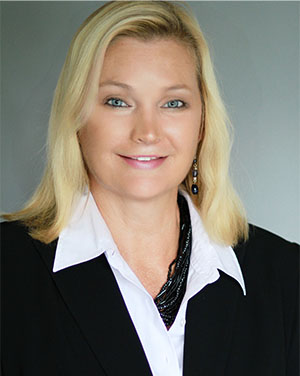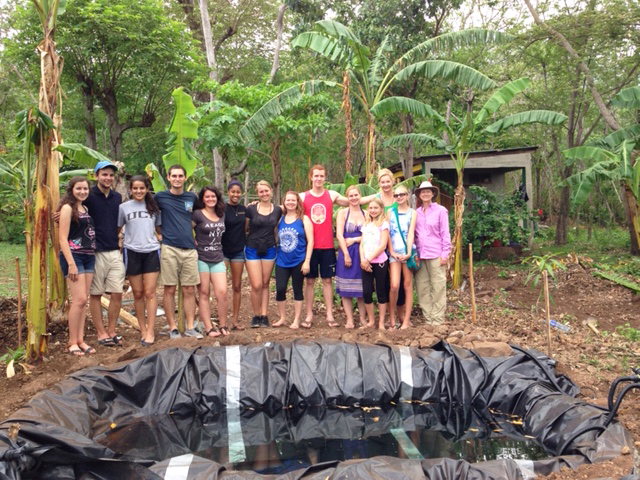Mary Beth Morgan
Director of Operations, The Glenda G. Morgan Charitable Foundation
Could you share your professional journey with us?
I’ve been working in the international philanthropy arena for the last ten years for my family’s foundation. Our main goal is to provide operational guidance and strategic support to non-profit organizations around the world and give a business approach for charitable development, rather than short-term relief typically seen after catastrophic events.
My previous years in retail sales management gave me the necessary tools and foundation to manage a business, cultivate relationships, hold accountability, and work with a network of people with diverse cultures, skillsets and backgrounds.

What do you feel are some of the most important lessons that you have learned throughout your career?
Hard work and perseverance will get you to the end and provide a sense of accomplishment and fulfillment in ways that go beyond monetary measure.
Always be open to learning new things. You can gain knowledge from anyone. New experiences and chance encounters, no matter how brief, can change the course of your life and open new doors.
I try to live by this quote from Bonnie L. Mohr - “Love your life and what you’ve been given, it is not accidental - search for your purpose and do it as best you can. Dreaming does matter. It allows you to become that which you aspire to be.”
As director of operations for the Glenda G. Morgan Charitable Foundation, what is your primary focus?
My primary focus is to facilitate charitable development with organizations that have the same mission as we do, which is to help others that are less fortunate help themselves. We support and align with organizations in some of the poorest communities around the world to create solid foundations for education and resources for self-sustainability.
The foundation supports international economic development projects in Nicaragua, Haiti, and Guatemala. Could you share why you chose those countries, and the importance of those projects to the local community?
Our foundation started supporting these countries many years ago through the involvement of some of our board members in various mission-based projects. It was clear the lack of governmental support for the people who were living in absolute poverty and their dire need for basics like food, water, shelter, and medical access. Partnering with other organizations that have prior in-country connections and expertise to meet our objectives has been the key to the success of the developmental programs.
Our programs have created employment opportunities by providing education and job training. We have established schools and provided access to clean water and food sources in remote communities. Some of the organizations that we support, with their projects listed, are:
- Alliance for International Reforestation in Guatemala - reforest mountainsides to prevent mudslides and regain vital topsoil necessary for planting crops and creating income opportunities for families
- Caribbean Harvest Foundation in Haiti - brought fish farming back to the region to provide a local food source and jobs to families, including a fish hatchery and processing plant
- Haiti Reforestation Partnership in Haiti - teaches forestry and agricultural techniques providing food and income resources for families
- Christian Veterinary Mission in Nicaragua - educates farmers through animal husbandry, agricultural development, veterinary medicine, and health clinics

BHC Scholars stand next to the tilapia pond they constructed in Nicaragua.
What most excites you about the Burnett Honors College? Why has it been important for you to support BHC initiatives?
The Burnett Honors College does an outstanding job with the study abroad programs; beginning with the dean’s leadership, the faculty who champion the trips, and the brilliant students participating. Careful consideration goes into the student selection process with applications and interviews to ensure the BHC’s objectives are aligned with each student. BHC prepares students in classes before travel to learn about the country they are visiting, the culture, the language, and the community projects they will be participating in. Working together cohesively as a team on various projects creates a stronger bond between the chosen groups and better outcomes in the communities.
It is important to me to support the BHC initiatives because their study abroad programs contain a philanthropic/humanitarian component. BHC can provide the opportunity for students to become global citizens reaching well beyond the classroom.
What can students gain by participating in a study abroad experience? What can they learn about themselves? About others?
I feel students can gain perspective by seeing how others live. Traveling abroad and spearheading projects can greatly strengthen a student’s leadership skills, critical thinking, and problem solving. Learning from others to have patience, diligence, and perseverance will help make them a more rounded individual. My hope is that they will want to continue to serve and give back — to UCF, their hometowns, or anywhere in the world.
I think you gain a lot of perspective on the things that matter most in life and things that you shouldn’t take for granted like food, water, shelter, education, and a solid support system. Students learn a greater sense of appreciation and empowerment to help others help themselves.
Why is it important for you to “give back” by supporting student study abroad experiences and the creation of “global citizens”?
It’s important for me to give back by supporting a student’s study abroad experience so they can develop a greater sense of appreciation and compassion. The BHC has taken a big role in creating global citizens and productive members of society through empowerment education and the philanthropic/humanitarian component of their programs.
Through my partnership with UCF and the communities we serve in foreign countries, we’ve developed a relationship that continues to grow and evolve. I’ve met faculty and students who share the same enthusiasm and compassion for those less fortunate, the willingness to help make a change, and the courage to do something about it. As we try to instill these values in our students, travel may be the key that unlocks those desires in them.